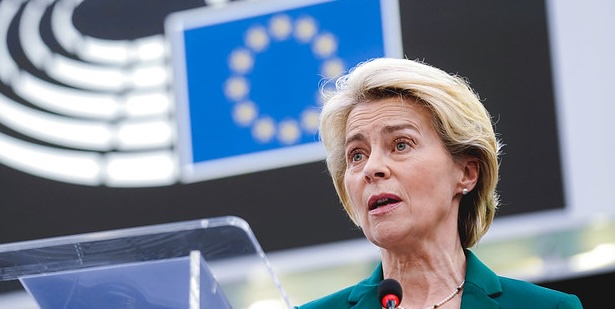Already a subscriber? Make sure to log into your account before viewing this content. You can access your account by hitting the “login” button on the top right corner. Still unable to see the content after signing in? Make sure your card on file is up-to-date.
The European Union has imposed retaliatory tariffs of up to 25% on a wide range of US goods.
Some shit you should know before you read: If you’re unaware, the US initially imposed tariffs on all foreign imports, with baseline rates set at 10% and much steeper, country-specific increases—such as a 104% total tariff on Chinese goods. President Trump defended the move as necessary to correct long-standing trade imbalances and to crack down on unfair practices like currency manipulation and export subsidies. As of today, Trump announced a 90-day delay on tariffs for most countries but held a 125% tariff on China. This move has sent stocks soaring (though still below initial numbers before stocks tanked following tariff announcements). Some countries, including Japan and Vietnam, have signaled a willingness to negotiate, while others, like China, have responded aggressively, escalating a tit-for-tat tariff war that has further strained relations. Some have speculated that Trump’s broader strategy is to slow China’s growth, undermine its manufacturing dominance, and trigger a realignment in global supply chains that favors domestic US production.

What’s going on now: In an announcement, the EU confirmed retaliatory tariffs of up to 25% on approximately $23 billion worth of US goods, marking its first response to the Trump administration’s steel and aluminum import duties. The tariffs will be introduced in phases, beginning April 15, with additional rounds set for May and December. A broad range of US exports will be affected, including agricultural products like soybeans, poultry, beef, and dairy, as well as industrial goods such as iron, steel, and home appliances. Consumer items like motorcycles and ice cream are also expected to face tariffs.
EU officials stressed that the measures are both lawful and proportionate, intended to counter what they described as harmful and unjustified trade restrictions from the US. In its statement, the European Commission noted that the tariffs were carefully calibrated and would remain in place only as long as necessary. “Countermeasures can be suspended at any time, should the U.S. agree to a fair and balanced negotiated outcome,” the Commission said.

French Trade Minister Laurent Saint-Martin spoke about the bloc’s broader strategy, stating, “We believe that a tariff war is harmful for everyone. We must continue the work of dialogue and negotiation with the US administration in order to achieve the most positive agenda possible.”
As of now, the EU has not signaled if they’ll delay their tariffs following President Trump’s announcement. Despite this, Commerce Secretary Howard Lutnick said he anticipates them doing so.






